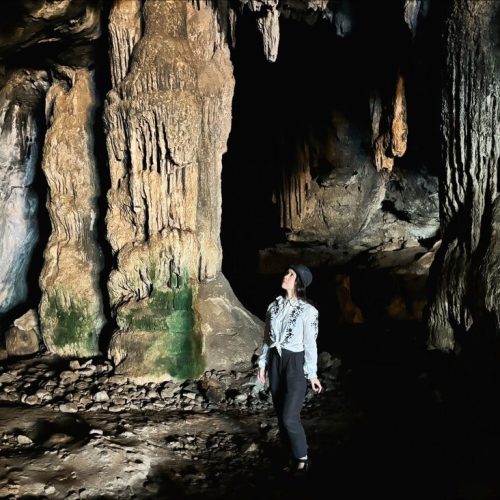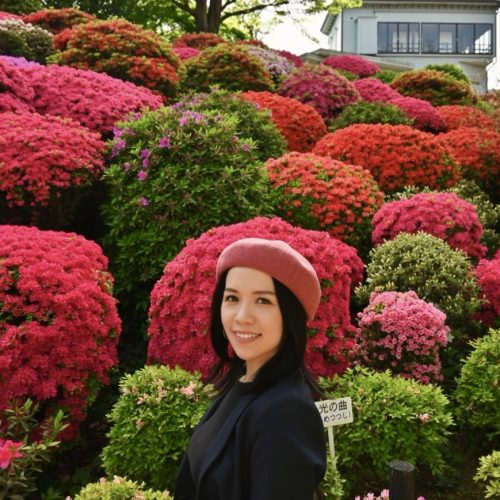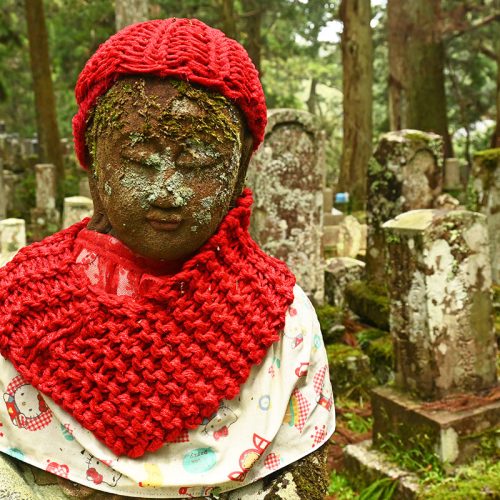
A walk through Bucharest reveals a vast array of architectural styles and reflects the city’s interesting and dramatic past. Though perhaps the most unique way to peer behind the curtain of Romania’s history, is to step inside Ceausescu Mansion.
I was interested in getting a glimpse into one of world’s most notorious figures of recent times, Romania’s former Communist leader Nicolae Ceausescu, so I took the opportunity to visit his former home which has remained virtually intact after he was overthrown.

Nicolae Ceausescu and his family lived in the mansion, also known as the ‘Spring Palace’ from 1965 until 1989, when his 24-year dictatorship came to a dramatic end. Nicolae and his wife Elena, fled Bucharest and were executed by military firing squad on the grounds of committing genocide after a trial that only lasted one hour.
Nowadays, the former residence operates as a museum offering guided tours which aim to narrate the private lives of the Ceausescu family.
Inside Ceausescu residence
From the outside, it doesn’t particularly stand out for sheer scale or fanciness, but that’s because many of the rooms were built underground, including a private cinema, physiotherapy clinic and a hunting room, so the house looks deceptively smaller.
It definitely can’t compare to the Palace of the Parliament in the centre of Bucharest (what can?) or one of the many resplendent palatial homes you’ll find in England. However, once inside Ceausescu residence, it’s a different story…

There’s nothing understated about the decoration, absolutely nothing. The former leader might as well have pasted his walls with one-hundred dollar bills.
At the entrance there’s a marble staircase and lobby, intricate wooden panel walls, and decorative tapestries to compose an image of absolute opulence and indulgence, and dare I say, kitsch, which I’m sure was never the intended effect. As the saying goes, money can’t buy class.

As we passed from one room to another, I could envisage Nicolae receiving state officials in his study or Elena swanning around in her expensive dresses and fur coats. When I heard that Nicolae only allowed his inner circle and closest friends into his home, I started giggling to myself. He would be turning in his grave right now and shouting, “Get the F out of MY house!”.
In reality, most state officials met him at the Palace of the Parliament, apart from President Richard Nixon who was one of the few that would be invited to stay at his pad. That revelation struck me as really odd and surprising. Nixon and Nicolae, buddies? But then again, maybe not, considering both their affinities for spying on people.

Presidential gifts
There are lots of decorative ornaments gifted to him by numerous communist dictators from Asia, including vases from Mao Zedong and Kim Il-Sung. In his study are the plates that Queen Elizabeth II gifted to him, along with several carpets given to him by the Shah of Iran.
I found the luxury of it all amusing and somewhat icky. However, it made me think of an idea. Wouldn’t it be cool if there was a museum dedicated solely to these objects? I’d call it the ‘Museum of Presidential Gifts’. Each object would include a description of the item, the person who presented the gift and the president who received it. I would also include the event at which the gift was presented. I mean, it’s a niche museum, but the best museums usually are.
(Actually, forget that. I just googled and apparently one exists in Cairo. Urgh. No idea is original anymore!)
The chess Room
The room I loved the most was the chess room, purely for the chess set which might not come as a surprise to some people. I usually don’t like decorative pieces, but I couldn’t help admire the craftsmanship.

The knights had been carved to depict them standing on their hind legs which is not typical of traditional chess sets. My tour guide told us that Nicoale was the best chess player in Romania, but followed this with a quip about no-one having the balls to beat him.
The pointless swimming pool
My second favourite part of the house was the swimming pool. I couldn’t quite work out whether the mosaic artwork looked horribly garish or fantastically fabulous, or both? Adding to the absurdity is that the family hardly ever used the pool, reportedly being afraid of water. A lack of money was clearly not a problem. A lack of sense and taste clearly was.

The blinging bathroom
We also saw the apartments of the family’s three children as our guide briefly outlined their personal stories too. As if all this luxury wasn’t enough, the bathrooms are blinged-out with shiny gold fixtures and shimmering gold tiles. Honestly, you simply cannot buy taste.

The tour ended at the mansion’s beautiful garden. There, we met the only remaining residents of Ceausescu Mansion: the peacocks. These are actually the descendants of the peacocks that Nicolae owned during his time at the palace.
Once outside Ceausescu residence, the obscene amount of gold I had seen left me feeling both dazzled and mortified. Walking around the home of a former dictator is a surreal experience. It’s hard to imagine the audacity and greed of one family spending so much on themselves, when so much of the population was suffering under poverty at the time. Romania today, particularly Bucharest, is very different than being under the helm of a dictator. It feels lively, free and fun, but the consequence of austerity still impacts the country to this day.
Read more about Bucharest & Romania
If you’re planning to visit Bucharest, this travel guide will help you explore the city: A 3-Day Bucharest Itinerary.
If you want to see more of Romania, this article should provide some travel inspiration: 12 Amazing Places to Visit in Romania.









